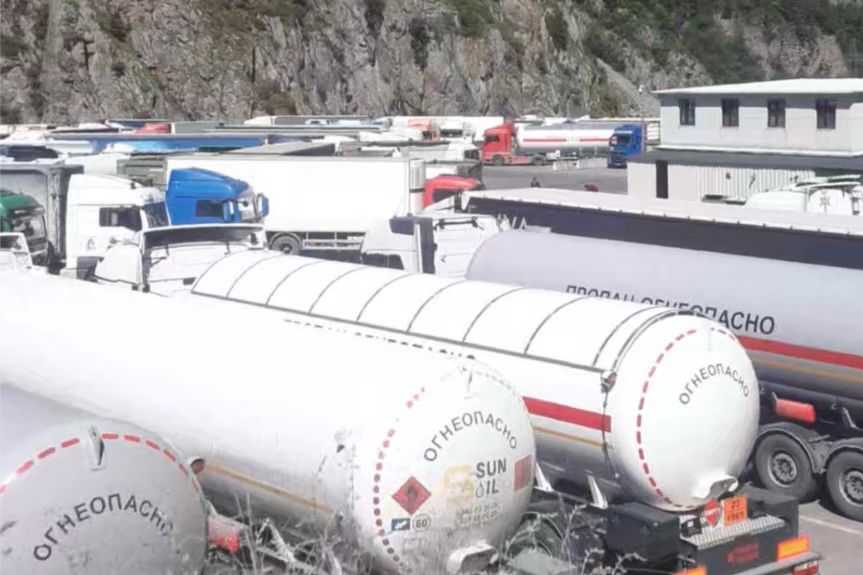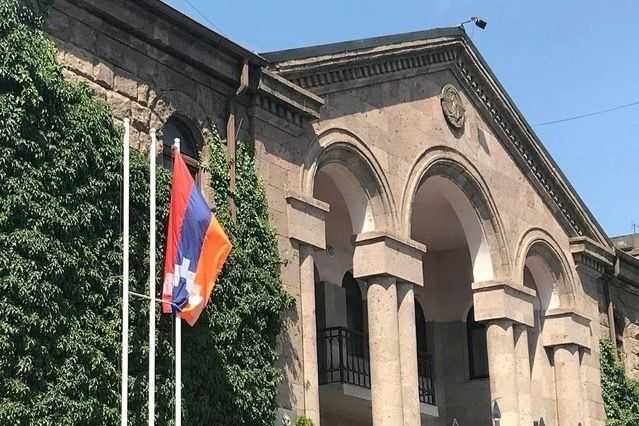
Nagorno-Karabakh is to introduce rationing of basic food goods as the territory struggles with shortages caused by the Lachin Corridor blockade. The authorities have also warned that power cuts will become more frequent due to damage to cables bringing electricity from Armenia through Azerbaijani-controlled territories.
The authorities announced that from 20 January, residents will be able to purchase just 1 kilogramme each of pasta, buckwheat, rice, and sugar and 1 litre of cooking oil per month.
According to the office of the State Minister of Nagorno-Karabakh, work is being done to implement a coupon system ‘in the coming days’.
The authorities said the measure would help ensure that food was distributed ‘as evenly as possible’.
A group of Azerbaijanis claiming to be ‘eco-activists’ blocked the Lachin Corridor — the sole road connecting Nagorno-Karabakh to the outside world — on 12 December over alleged environmental issues in mines in Nagorno-Karabakh.
Since the blockade began, shortages or a total absence of a number of products, including eggs, rice, sugar, tobacco, and medicines have been widely reported.
[Read on OC Media: Food shortages spark creative New Year’s solutions in Nagorno Karabakh]
Nagorno-Karabakh previously received over 400 tonnes of food and other supplies from Armenia daily.
The local authorities also stated on Tuesday that due to an unknown incident near Lachin (Berdzor), there would be an increasing number of power cuts in an attempt to save energy and rely on local generation alone.
Nagorno-Karabakh is heavily dependent on energy imports from Armenia. Several cables and gas pipelines pass through territory previously controlled by Nagorno-Karabakh which Azerbaijan took control of in the Second Nagorno-Karabakh War in 2020.
The damage to the electricity cables follows a two-day cut of gas supplies to Nagorno-Karabakh late in December.
During the month-long blockade, the only confirmed humanitarian aid to reach Nagorno-Karabakh was ten tonnes of medical supplies and baby food sent by the Red Cross. The delivery, which arrived in late December, was meant to last ten days.
During the month of the blockade, the Red Cross has also transferred more than a dozen patients, including children, to Armenia for treatment.
The blockade has led to rising calls from the authorities in Nagorno-Karabakh to allow the Stepanakert airport to begin operating.
The airport first opened in the mid-1970s but closed after the outbreak of the First Nagorno-Karabakh War in the 1990s. While the airport terminal and runway have been renovated, the authorities in Stepanakert have not received permission from Azerbaijan to operate flights in or out of the city.
On 5 January, the parliamentary speaker of the Nagorno-Karabakh Parliament called on the OSCE Minsk Group co-chairs — France, Russia, and the United States — to push for the opening of a ‘humanitarian airlift’. Russia-led negotiations organised in the first days of the blockade did not lead to any results.
Armenian authorities have not yet commented on the possibility of using the Stepanakert airport.
For ease of reading, we choose not to use qualifiers such as ‘de facto’, ‘unrecognised’, or ‘partially recognised’ when discussing institutions or political positions within Abkhazia, Nagorno-Karabakh, and South Ossetia. This does not imply a position on their status.






